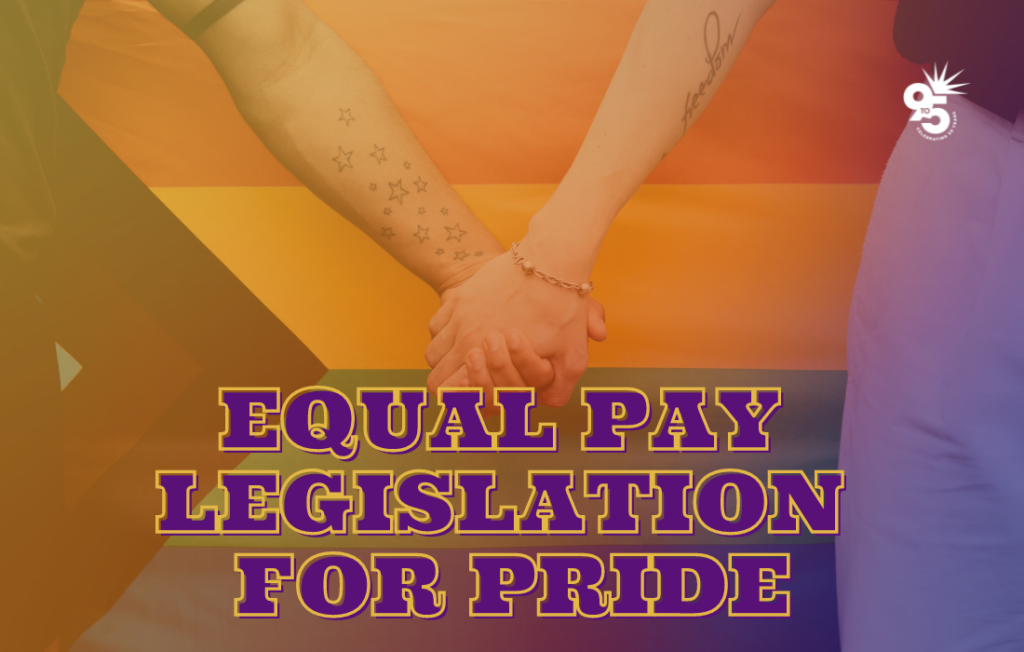
No one should be discriminated against because of who they are, what they look like, or who they love. Yet in our country, LGBTQ+ people are continually discriminated against by politicians, employers, and even in their own communities. In 2023, transgender people have faced an onslaught of harmful legislation and community hatred that threaten their ability to live their lives. From banning gender-affirming care to policing bathroom use, when politicians and communities enforce discriminatory, homophobic, and transphobic laws and policies they reinforce oppressive systems that only serve those in power.
Beyond the headlines, LGBTQ+ people continue to face discrimination that threatens their ability to thrive economically. Millions of LGBTQ+ people across the country remain vulnerable to being denied service, being displaced from their housing, being denied health care, and other basic freedoms simply because of who they are or who they love. We also don’t know how economic justice issues like the pay gap affect LGBTQ+ workers because that data just isn’t collected. In order to move solutions forward, we must be able to get a more accurate picture of the problem, and having the data is a big first step in that fight.
Beyond the headlines, LGBTQ+ people continue to face discrimination that threatens their ability to thrive economically. Millions of LGBTQ+ people across the country remain vulnerable to being denied service, being displaced from their housing, being denied health care, and other basic freedoms simply because of who they are or who they love.We also don’t know how economic justice issues like the pay gap affect LGBTQ+ workers because that data just isn’t collected. In order to move solutions forward, we must be able to get a more accurate picture of the problem, and having the data is a big first step in that fight.
Here are some legislation we’re watching that can help close the loopholes that allow people to discriminate against the LGBTQ+ community and helps make sure LGBTQ+ people are counted in data.
The Equality Act
The Equality Act would expand civil rights protections to explicitly and consistently protect LGBTQ+ people from discrimination in employment, credit, housing, federally funded programs, and in public places and spaces.
Passing the Equality Acts will include amending existing civil rights laws and several federal employment laws to explicitly include sexual orientation and gender identity as protected classes. This legislation will also amend the Civil Rights Act of 1964 to prohibit discrimination in public spaces and services and federally funded programs on the basis of sex.
The LBGTQ Data Inclusion Act
When it comes to facts about equal pay and other issues, it can be really difficult or even impossible to find data on LGBTQ+ communities’ discrimination. Unfortunately, data just doesn’t exist because the information just isn’t collected.
The LGBTQ Essential Data Act
The LGBTQ Essential Data Act will ensure that data about a person’s sexual orientation and gender identity are collected on death certificates. This change will improve the National Violent Death Reporting System. Too often, affirming families or bad actors in law enforcement choose a loved one’s untimely death to put them back in the closet or revert their gender identity. By standardizing demographic information collected on a person’s death certificate, we can assure people’s lived experiences are not erased in death.
Gay and Trans Panic Defense Prohibition Act
According to The LGBTQ+ Bar, the LGBTQ+ “panic” defense “is a legal strategy that asks a jury to find that a victim’s sexual orientation or gender identity/expression is to blame for a defendant’s violent reaction, including murder.” This act would ban this defense.
In addition to this legislation, we must ensure that all families, no matter what their love looks like and whether or not they have a legal or biological relationship, are included in the policies we’re advocating for at the local, state, and national level. We cannot leave LGBTQ+ people and their families out of vital legislation for paid leave, affordable child care, reproductive justice, and worker’s rights.

